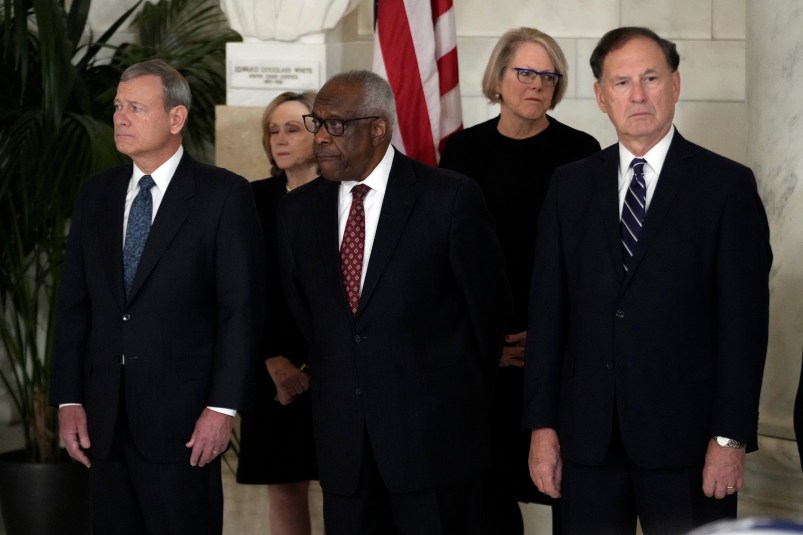Well, here we go. Reports this week, including from today’s New York Times, indicate that the President will escalate U.S. involvement in Iraq by deploying additional troops. CBS News last evening reported that plans already call for a brigade from the 82nd Airborne Division to deploy to Kuwait after the holidays. Incoming Secretary of Defense Robert Gates is expected to approve the move after being sworn in Monday.
I get the sense that everyone in the country except the President and Vice President is caught back on their heels at the moment. Here are just a few of the misconceptions that seem to be floating around since the election:
Myth: The results of the election will force the President to reevalute his Iraq strategy.
Reality: The election defeat has forced the White House to go through the motions of reevaluating its Iraq policy; hence, the President’s listening tour. Politically, he had no choice but to make a lavish effort to look responsive to the election results. Substantively, however, everything about this Administration suggests it will do what it wants to do regardless. The last few weeks reinforce that impression. If the White House can blow off the bipartisan elder statesmen of the Iraq Study Group, it can certainly ignore Democrats, the press, and the people.
Myth: Following the reevaluation of its Iraq policy, the White House will announce its proposed New Way Forward, whereupon there will be a vigorous national debate.
Reality: The White House is not going to wait for the Democratic Congress or for an extended national debate before it proceeds. There are some indications that the reason for delaying the President’s announcement of “The New Way Forward” is so that he can announce a fait accompli. (Andy Card, who famously noted about the 2002 run-up to the Iraq invasion that you don’t roll out a marketing campaign in August, might also say the same thing about launching one during the Christmas holidays.) I wouldn’t be surprised to see new deployment orders already issued by the time Democrats officially take over Congress in the first week of January, the President’s way of grabbing his crotch and saying, Debate this.
Myth: Rumsfeld’s exit and Gates’ entrance signal a new direction from the White House.
Reality: The relief and excitement that greeted Gates’ nomination seemed all out of proportion then and even more so now. Gates caught official Washington, and many Democrats, on the rebound. If Rumsfeld was the bad boyfriend, then Gates swept everyone off their feet simply by being soft-spoken and listening. So instead of using the hearings on the Gates’ nomination as the starting point for a debate on Iraq policy, it became a bipartisan lovefest. The myth that the ISG report would somehow save the day has already been exploded. The adults are not in charge; Cheney still is. I would expect that Cheney and Rumsfield conspired in the last few weeks of Rumsfeld’s tenure to start the ball rolling on the New Way Forward with the intention of constraining Gates’ options.
Myth: The prospect of Democratic oversight will sober up the Administration and force it to rein itself in.
Reality: The White House is going to try to outflank Congress with speed and agility. Troop deployments are a perfect example. Deploy the troops, then ask Congress for the funding. Are Democrats going to support the troops already there, or pull the rug out from under them?
Myth: Congessional hearings will build public support for withdrawal from Iraq.
Reality: It is difficult to imagine public sentiment against the war being any higher than it is right now. In this week’s NBC/WSJ poll, 71 percent of respondents disapproved of the President’s handling of Iraq. As soon as congressional hearings begin, the President is likely to get some bump in the polls because it allows him to cast the debate in familiar political terms. The President versus congressional Democrats is a much better matchup for the White House than the President versus the reality of his disastrous policies. Congressional hearings are also messy, boring, and diffuse–an important part of good governance, but not especially effective at rallying public support one way or another, at least in the short-term.
So while quite a few Americans and an abundance of commentators heralded the midterm elections and the ISG report as the beginning of the end of U.S. involvement in Iraq, I am afraid Americans will shake off their New Year’s hangovers and discover a new and deeper American commitment in Iraq, one which won’t easily be reversed for the remainder of the Bush presidency.






